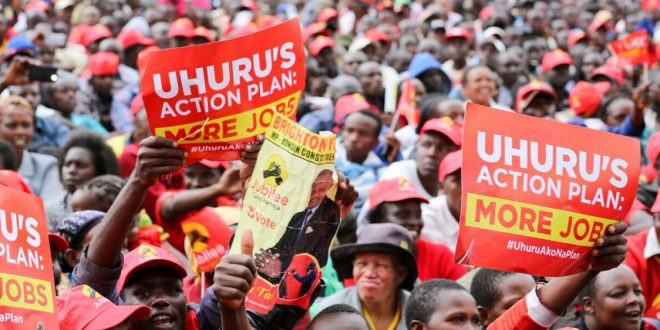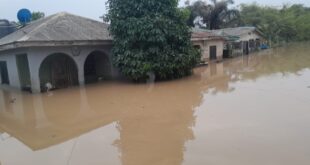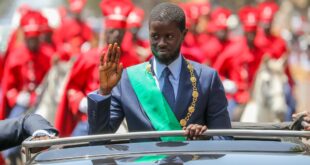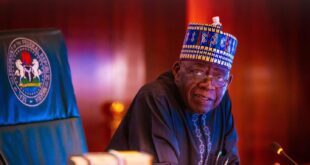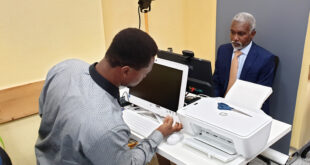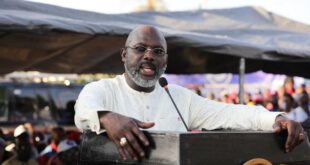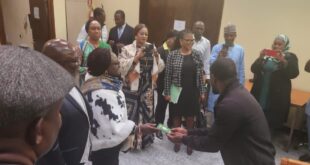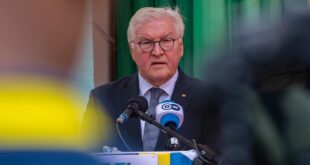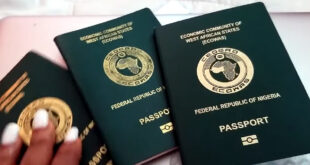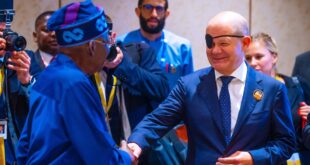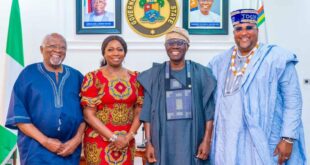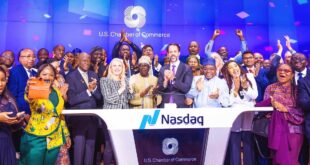Young people in Africa continue to be frustrated by their exclusion and exploitation in political processes. In order to build a mutually beneficial Europe-Africa Partnership that enhances youth trust in political processes, Zigwai Tagwai and Merryl Omondi* have come up with a few concrete points on building inclusive democracies
VENRO, the Association of German Development and Humanitarian NGOs, has been implementing the project “Towards an open, fair and sustainable Europe in the world – EU Presidency Project 2020-2022”. The project promises to enhance the partnership between Africa and Europe by increasing youths’ trust and participation in political processes. This collaboration involving Youth Delegates and Advocates for Sustainable Development across Europe and Africa was designed to identify, empower and connect youth led initiatives towards enhancing youth participation in leadership and governance.
History has proven a partnership between our continents is increasingly becoming a necessity to promote prosperity and democracy for the people of both continents. However, young people in Africa continue to be frustrated by their exclusion and exploitation in political processes. A clear example of the exploitation youths face in many African countries is the continuous manipulation by political leaders to influence the decision of youths during elections through vote buying and capitalizing on their financial vulnerability. Their significant contributions to democratic processes are often unrecognized and unheard leading to heightened voter apathy among youth.
According to a UNFPA Report, more than one-third of the total population in Sub-Saharan Africa are youth, aged 10 to 24. This demonstrates the critical need to advance the trust of youth in building resilient political institutions. Our participation in the EU-AU Youth workshop was a very rare platform for grassroot activists to participate in intellectual exchange and cocreate policy demands to support the practical inclusion of young people in the decision-making process.
In order to build a mutually beneficial Europe-Africa Partnership that enhances youth trust in political processes, we have come up with a few concrete points on building inclusive democracies;
Cross continental democratic reforms Globally, there is a growing discontent with democratic rule fuelled by the use of political positions to enrich and empower elected representatives. Structural reforms are crucial to promote youth inclusion in policy implementation and adopt evidence in decision making. The fundamental goal for our unions should be to deliver fair, peaceful and transparent elections. This serves to build the trust of the people through the protection of youth against electoral violence; freedom of speech and association and most importantly the election of qualified representatives.
Public service accountability in the Post COVID-19 Recovery Era The Great Lockdown catalyzed a massive inflow of emergency response and recovery grants to African governments. The continent has been marred by numerous accusations and theft scandals in which COVID-19 relief funds have been embezzled through shoddy procurement and misappropriation. As global activists continue to push for debt relief, we must demand for government accountability.
Financing youth-led mobilization and technical capacity development Facilitating continent wide skills development for grassroot youth activists, organizations and initiatives will support youth engagement and mobilization on a large scale. A detrimental factor to democracy is the lack of knowledge to effectively engage with and understand the system. Supporting young leaders to drive innovation and sustainability will in turn ensure strong and viable institutions.
READ ALSO: Remembering Theodor Michael, one year on
Despite the push to build the trust of youth in political processes, there are key learnings and challenges young people should overcome to earn the good will of society. Youth inclusion in decision-making is still possible through adapting complementary ways of leading. This includes embracing intergenerational co-leadership as a tool to build cohesive partnerships for young people.
As youths, we need to utilize the spaces we have found ourselves to positively impact and bring about a sustainable future, by having equal representation, creating viable platforms and taking action to build trust. There is no government without us. We therefore call on the EU-AU to support concrete initiatives connected to youths in all areas and build partnerships between youth led organizations and the government.
———–
About the Writers
Both authors are Global Activists of the ONE Campaign. ONE is a global movement campaigning to end extreme poverty and preventable disease by 2030 so that everyone, everywhere can lead a life of dignity and opportunity.
Zigwai Tagwai
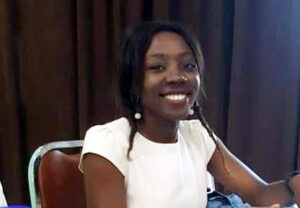
A good governance activist and social mobilizer. She is a ONE Champion in Nigeria, working to ensure transparency and accountability in governance processes, through continuous civic education of youths in Nigeria and effective engagement with elected representatives. An Alumnus of Young Africans Leadership Initiative (YALI), West Africa in Civic Society Leadership and Management, with a Bachelor’s Degree in International Studies.
Merryl Omondi
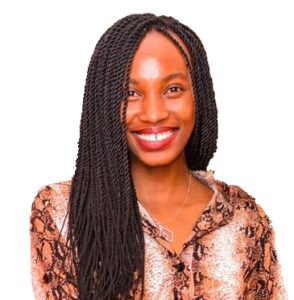
Merryl Omondi is a public policy professional with 3 years of experience in managing projects, developing and implementing enterprise development policies for startups and SMEs in Kenya. She currently works at the @iLabAfrica Center as an Assistant Manager in the @iBizAfrica business incubator supporting a network of over 400 entrepreneurs. She is passionate about youth leadership and governance, entrepreneurship, technology and politics.
 THE AFRICAN COURIER. Reporting Africa and its Diaspora! The African Courier is an international magazine published in Germany to report on Africa and the Diaspora African experience. The first issue of the bimonthly magazine appeared on the newsstands on 15 February 1998. The African Courier is a communication forum for European-African political, economic and cultural exchanges, and a voice for Africa in Europe.
THE AFRICAN COURIER. Reporting Africa and its Diaspora! The African Courier is an international magazine published in Germany to report on Africa and the Diaspora African experience. The first issue of the bimonthly magazine appeared on the newsstands on 15 February 1998. The African Courier is a communication forum for European-African political, economic and cultural exchanges, and a voice for Africa in Europe.

